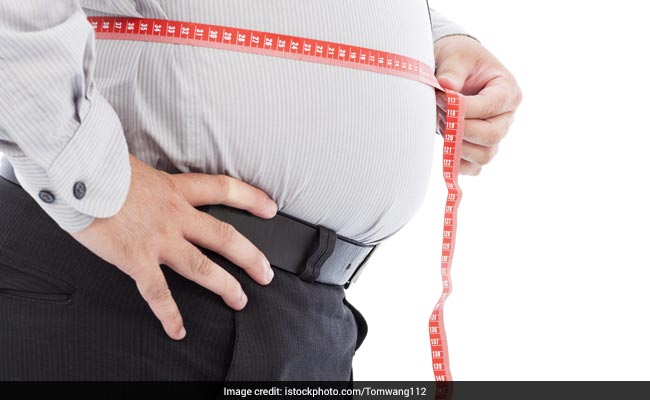Learn more about bloating vs fat and discover the causes behind both.
Learn more about bloating vs fat and discover the causes behind both.
Blog Article
Comprehending the Difference Between Bloating and Fat: a Vital Overview for Digestive Health And Wellness
Understanding the difference in between bloating and excess body fat is crucial for anybody worried about gastrointestinal wellness. While bloating presents as a short-term and frequently awkward problem, generally linked to nutritional habits or digestive system disturbances, body fat represents a more permanent modification in one's body. This distinction is not merely scholastic; it carries considerable effects for just how people come close to signs and symptoms and treatment. As we check out the subtleties of these 2 sensations, the importance of recognizing their corresponding causes and management strategies becomes progressively apparent. What are the practical steps one can take to resolve these concerns successfully?
Defining Bloating and Fat
Bloating and fat are two unique physiological phenomena that can dramatically affect a person's comfort and body picture. Bloating refers to the short-term swelling or distension of the abdominal area, frequently gone along with by pain or a feeling of fullness. This condition may emerge from various factors, including nutritional selections, digestion problems, or fluid retention. Bloating is usually a short-term event and can change throughout the day, usually fixing with way of life modifications or clinical interventions.
On the other hand, body fat is an extra irreversible and steady element of human physiology, primarily acting as a power book and playing vital functions in hormone guideline and insulation. Body fat is identified into two types: subcutaneous fat, which exists just underneath the skin, and visceral fat, which borders inner organs. While excess body fat can result in health complications, it is crucial for general physical features.
Reasons of Bloating

In addition, food intolerances, such as lactose or gluten intolerance, can lead to bloating when the body has a hard time to refine particular materials - bloating vs fat. Eating too promptly or eating carbonated beverages can also aggravate the problem, as learn this here now these habits introduce excess air right into the digestive system
Way of living factors, consisting of stress and anxiety and absence of physical task, can further add to bloating by influencing digestive tract motility. Specific medical conditions, such as short-tempered bowel syndrome (IBS) or gastrointestinal obstruction, may also cause chronic bloating. Understanding these causes is important for efficiently managing and relieving bloating, permitting people to make educated dietary and way of life options that sustain their digestion wellness.
Signs of Bloating vs. Fat
Distinguishing in between the signs and symptoms of bloating and excess fat is important for recognizing one's body and attending to discomfort efficiently. Bloating typically presents as a feeling of volume or pressure in the abdomen, frequently gone along with by noticeable distension. People might experience pain, cramping, or perhaps pain, particularly after meals. Bloating can also lead to too much gas, leading to burping or unwanted gas.
While it may contribute to a feeling of heaviness, it generally does not generate the acute discomfort associated with bloating. Instead, excess fat has a tendency to build up slowly, leading to a modification in body form and size over time.

Identifying these distinctions is vital. While bloating is typically momentary and connected to dietary aspects or digestion problems, excess fat shows a more chronic condition needing way of life changes. Recognizing these symptoms empowers individuals to look for suitable services tailored to their certain issues pertaining to digestion wellness and body structure.
Taking Care Of Bloating
Effective management of bloating requires a diverse technique that resolves both dietary options and lifestyle practices. It is essential to recognize and remove particular foods that may activate bloating, such as those high in fiber, gluten, lactose, or specific fermentable carbohydrates (FODMAPs) Maintaining a food journal can aid pinpoint these triggers and guide modifications.
Integrating smaller, extra frequent meals rather than huge ones can additionally lessen bloating, as it alleviates the gastrointestinal procedure (fat and bloating). Staying well-hydrated is essential, as enough fluid intake aids digestion and aids avoid bowel irregularity, which can add to bloating
In addition, participating in normal physical activity promotes gastrointestinal mobility and minimizes bloating. Straightforward workouts, such as walking or yoga exercise, can successfully relieve pain. Mindful eating practices, such as consuming gradually and eating food thoroughly, might further boost digestion and limitation air swallowing.
When to Seek Aid
Identifying when to look read more for medical help for bloating is critical, as persistent or severe symptoms might indicate an underlying wellness problem. If bloating is accompanied by additional worrying signs such as significant abdominal discomfort, unusual weight-loss, rectal bleeding, or constant nausea and throwing up, it is important to consult a medical care professional. These indications may recommend conditions such as cranky bowel syndrome, intestinal blockage, and even much more severe concerns like cancer cells.
In addition, if bloating persists regardless of dietary changes or non-prescription remedies, it calls for further examination. People with my response a background of stomach problems must be especially alert, as their danger for problems may be higher. In addition, if bloating happens following the consumption of certain foods, it may suggest food intolerances or allergic reactions that demand nutritional changes or testing.
Verdict
In summary, comparing bloating and excess body fat is important for digestive system wellness and total well-being. Bloating, a short-term condition frequently connected to dietary aspects and digestion problems, contrasts dramatically with the stable buildup of body fat. Identifying the signs and symptoms and underlying causes of each can facilitate ideal monitoring techniques. People experiencing persistent or extreme signs ought to look for professional advice to deal with potential health and wellness concerns effectively. Comprehending these distinctions is important for notified decision-making regarding wellness and lifestyle.
Report this page